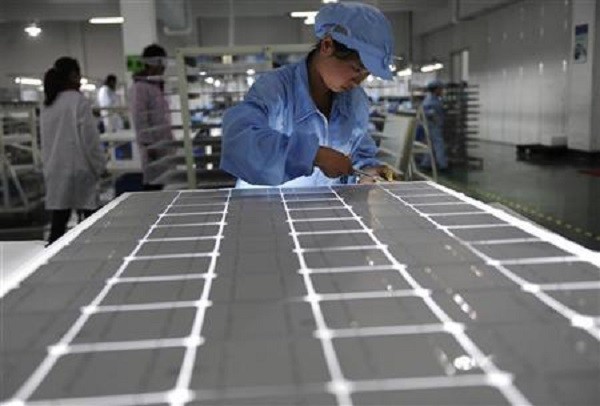Major Chinese solar panel makers are making new investments and expanding to other countries, such as Thailand, due to the rising costs and strict anti-dumping duties in the U.S. and Europe, China Daily reported.
According to the report, many solar power companies have invested in Thailand due to several factors that include supportive government policies, growing demand, high-growth opportunities and low-duty export potential.
The report also said that labor and operations in China are not helping the companies, not to mention the declining prices, overcapacity and rising costs related to office rents.
U.S. Colliers International cited that an office in a prime location in Thailand's big cities costs about $21 per square meter per year, much lower than Shanghai's rate at $46.8.
In addition, Chinese solar panel makers suffered from the U.S. anti-dumping duties in the last few years as the U.S. Commerce Department raised average duties on Chinese products but lowered them for Taiwanese products.
U.S. import tariffs on solar energy products made in China reached 165 percent at the end of 2014, way below the 27.55 percent levy, compared to made-in-Taiwan products.
China Chamber of Commerce for Import and Export of Machinery and Electronic Products said that the value of Chinese exports has been reduced by the U.S. tariffs by about $300 million last year, affecting more than 200 Chinese solar panel makers.
Yingli Solar, the Baoding-based company and the world's second largest solar panel maker, has not reported profits since 2011 due to overcapacity and said excessive production caused prices of solar products to plunge.
To cope, survive and expand, Yingli said it will partner with local player in Thailand, Demeter Corp., to set up a 40:60 joint venture to produce multi-crystalline photovoltaic panels. The panels will be sold under the Yingli Solar brand name.
Yingli told China Daily that the partnership will set up a $19-million, 300-mW solar power plant in Rayong.
Aside from that, Yingli has also partnered with telecommunications and electronics giant Huawei Technologies Co. Ltd., which is also a big player in the photovoltaic inverter market, to provide a series of solar power solutions to the Thai market.
Another company, Trina Solar, a photovoltaic modules maker based in Changzhou, Jiangsu Province, has set up regional headquarters in Singapore as demand for solar panels has grown rapidly in Southeast Asia. The company has also invested about $160 million to build its factory in Thailand in May 2015. This year, it will start construction of the factory that can make solar cells that can produce 700 mW of power annually and solar panels that can generate 500 mW of electricity annually.
The report said that the key factor that makes Thailand attractive to Chinese solar panel makers is that the country does not invite heavy duties in the U.S. and Europe. In addition, the country has a stable investment environment as well as support for the solar power industry.
Since 2008, Thailand has been implementing its alternative energy development strategy, covering all sectors of clean energy, including large-scale solar power station projects.
Experts said that one of the reasons why Chinese companies are setting up factories in the country is due to the huge potential for growth in Thailand's domestic solar power market.
Experts said Thailand could also help Chinese solar panel companies export their products to Europe.




























